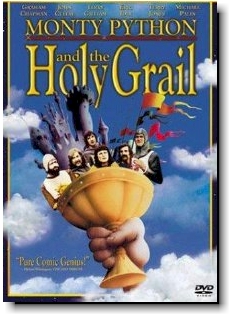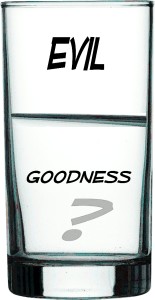 During the production of “Monty Python and the Holy Grail,” the producers were incessantly asked by reporters, “What’s your next movie?” Tired of responding, Eric Idle flippantly responded “Jesus Christ’s Lust for Glory.” Well, that shut up the reporters, but given the serious implications of satirizing our Lord, the Monty Python troupe eventually rendered a milder title, although nonetheless a rather questionable movie entitled “The Life of Brian.”
During the production of “Monty Python and the Holy Grail,” the producers were incessantly asked by reporters, “What’s your next movie?” Tired of responding, Eric Idle flippantly responded “Jesus Christ’s Lust for Glory.” Well, that shut up the reporters, but given the serious implications of satirizing our Lord, the Monty Python troupe eventually rendered a milder title, although nonetheless a rather questionable movie entitled “The Life of Brian.”
Recently, in Thursday Night Wrestling we’ve been learning about the supremacy of Christ. If there were anyone who ever deserved glory, it would indeed be the One who created the universe (Colossians 1:16), demonstrated publicly the righteousness of Father God (Romans 3:25), and built a heavenly domain for all His believers (John 14).
![]() this is the great thing about my Jesus. He always gave glory to other persons in Trinity. Once, when a questioner called Him “good,” Jesus said no one is good except Father God—the Son gave Father God the glory (Luke 18:18ff). When His disciples were worried about His departure from earth (John 14), He told us about sending Holy Spirit in His place, and through Holy Spirit even greater things would be done to glorify.
this is the great thing about my Jesus. He always gave glory to other persons in Trinity. Once, when a questioner called Him “good,” Jesus said no one is good except Father God—the Son gave Father God the glory (Luke 18:18ff). When His disciples were worried about His departure from earth (John 14), He told us about sending Holy Spirit in His place, and through Holy Spirit even greater things would be done to glorify.
My Christ was not about glory. In fact, He presented Himself as human, as a servant, obedient even to a cross, not seeking His full status while on earth (Philippians 2). As a result, Father God elevated my Christ to the highest, gave Him a name above all names, and at that name every knee will bow, every tongue will confess that Jesus the Christ is the Lord of lords, and King of kings.
Someday, Eric Idle, and the whole world will fully understand Christ came not to seek glory. Counter-intuitively, glory came to Him because He sought it not. To whom do you give glory? Is your story full of His glory?
 There’s a lot of evil in the world. And, there’s a lot of good in the world. But, is the glass half empty, or half-full?
There’s a lot of evil in the world. And, there’s a lot of good in the world. But, is the glass half empty, or half-full? The obviously good is easy to spot—words, thoughts, and acts which protect the innocent. For example, why are we so full of joy at the birth of a new child? Why do we giggle with delight when seeing those laughing babies on YouTube? Is this obvious good, or subtle good? Is the glass half-empty, or half-full?
The obviously good is easy to spot—words, thoughts, and acts which protect the innocent. For example, why are we so full of joy at the birth of a new child? Why do we giggle with delight when seeing those laughing babies on YouTube? Is this obvious good, or subtle good? Is the glass half-empty, or half-full?